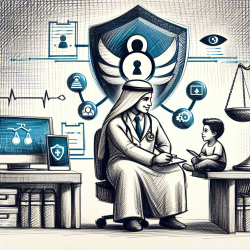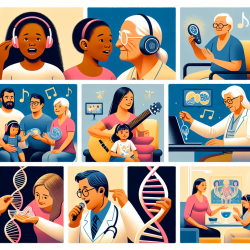The issue of adolescent pregnancy is a significant public health concern with far-reaching implications. Recent research titled “It's like being involved in a car crash”: teen pregnancy narratives of adolescents and young adults in Jos, Nigeria, sheds light on the experiences and challenges faced by young women who experience teenage pregnancy. This study provides valuable insights that practitioners can use to enhance their skills and improve outcomes for adolescents.
The Importance of Sexual and Reproductive Health Education
The research highlights a critical gap in sexual and reproductive health (SRH) education among adolescents in Jos, Nigeria. Many participants lacked the necessary knowledge to make informed decisions about their reproductive health, leading to unintended pregnancies. Practitioners can play a pivotal role in addressing this gap by advocating for comprehensive SRH education in schools and communities.
Implementing programs that provide accurate information about contraception, pregnancy prevention, and sexual health can empower young people to make informed choices. Practitioners should collaborate with educators, parents, and community leaders to ensure that SRH education is culturally sensitive and accessible to all adolescents.
Enhancing Parental Communication
A lack of open communication between parents and children about sexual health was identified as a significant risk factor for adolescent pregnancy. Practitioners can encourage parents to engage in honest discussions with their children about SRH topics. Providing parents with resources and training on how to approach these conversations can help reduce stigma and misinformation.
Addressing Emotional and Psychological Challenges
The emotional toll of adolescent pregnancy is profound, with many participants experiencing fear, shame, anxiety, and depression. Practitioners should be equipped to provide psychological support to pregnant adolescents and young mothers. Creating safe spaces for them to express their feelings and receive counseling can help mitigate the negative emotional impact of teenage pregnancy.
Promoting Resilience and Empowerment
The study also highlights the resilience of some young mothers who managed to continue their education and improve their social outcomes despite the challenges they faced. Practitioners can support this resilience by connecting adolescents with resources such as educational programs, vocational training, and mentorship opportunities.
Empowering young mothers through education and skill-building initiatives can help break the cycle of poverty and social disadvantage often associated with adolescent pregnancy. Practitioners should advocate for policies that facilitate the return of young mothers to school after childbirth.
The Role of Online Therapy Services
TinyEYE's online therapy services can be an invaluable resource for schools looking to address the emotional and psychological needs of pregnant adolescents. By providing accessible counseling services, schools can ensure that students receive the support they need without the barriers of transportation or stigma associated with seeking help in person.
TinyEYE's platform allows practitioners to connect with students remotely, offering flexibility and confidentiality. Schools should consider integrating online therapy services into their support systems for pregnant adolescents.
A Call for Further Research
The findings from this study underscore the need for further research into adolescent pregnancy experiences across different cultural contexts. Practitioners are encouraged to engage in ongoing research efforts to better understand the diverse factors contributing to teenage pregnancy and develop targeted interventions.










